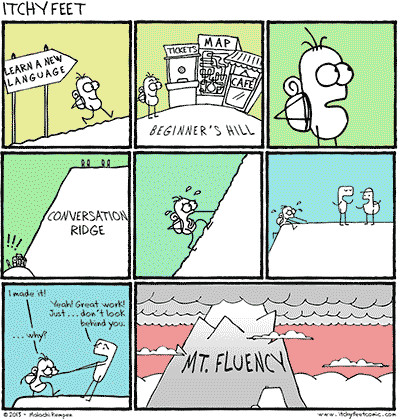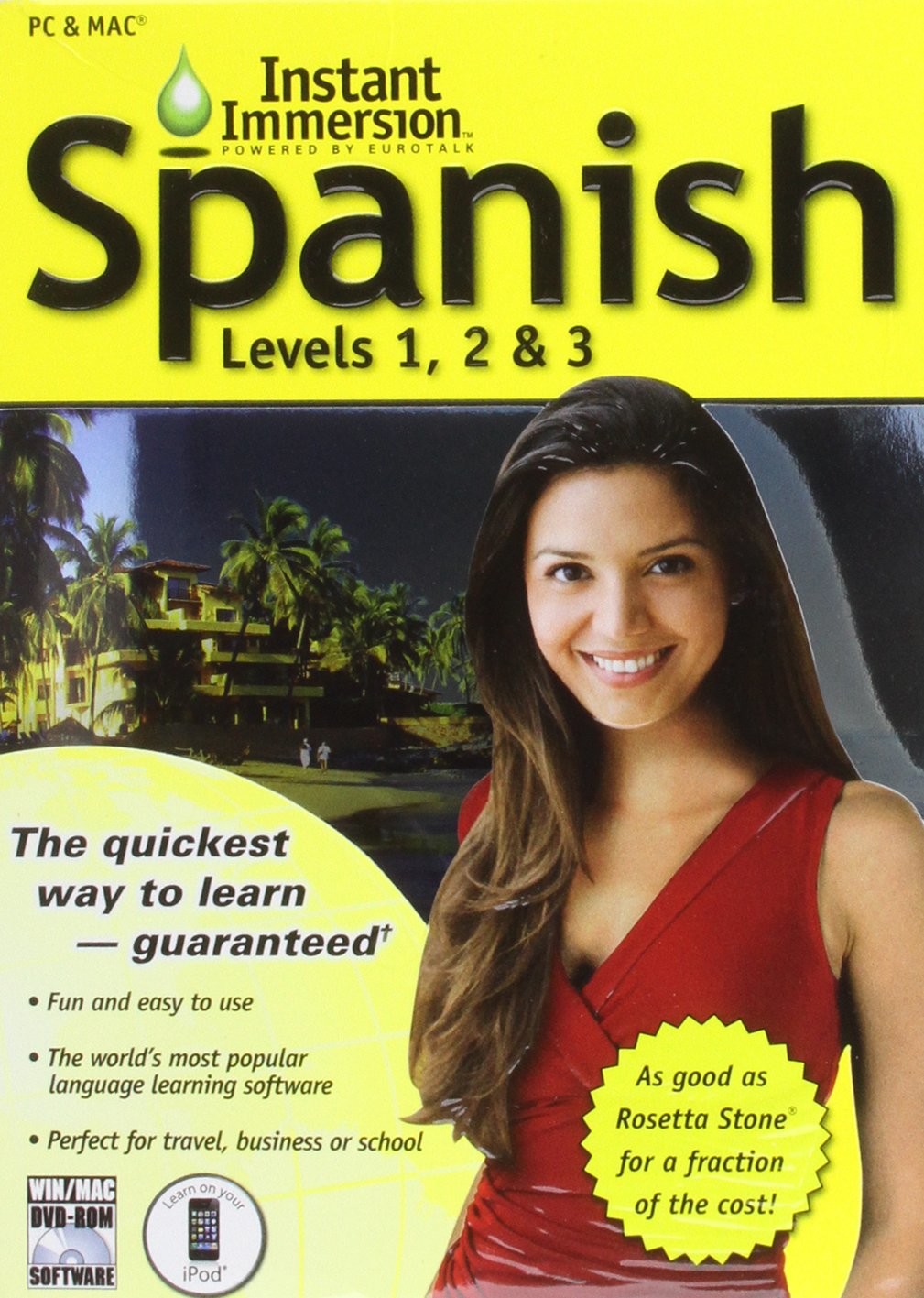The best methods to learning a language
Whether you are an Erasmus student or simply a world traveler, you already know the great importance of learning a new language (or even two or three). Not only does speaking more than one language help you to order food at a restaurant in another country, but it greatly expands your mind to better understand and be more sensitive to cultures besides your own.
After becoming bilingual or trilingual, communication is improved, be it for business purposes or purely for social interactions. When you know other languages, you don't just understand new words, but you understand different ways of thinking and you have a new perspective of the world.
Besides these practical benefits of learning a language, the long-term health benefits are amazing as well, including but not limited to a better memory and prevention of dementia. While all of this sounds great, we all know that getting there is not easy.

Learning a new language to the point of being fluent is challenging, and it can be a great struggle for some people. I've discovered the best methods to learning a language for me, so these tips might be helpful for you too.
What is the best method to learning a language?
Home and/or school
I have been exposed to learning different languages using different methods. I initially learned French just by speaking it at home with my mother and grandmother, and later I learned the grammar and spelling in middle school, high school and college, eventually living five months in France (Erasmus life) during my last year in college.

I then learned Spanish; the basic level was taught to me in elementary school, and I took a couple of classes in college. It was not until I graduated college when I realized that I was very lucky to have the opportunity to learn languages since elementary school; in the real working world, it can be expensive to take classes and you must make time in your schedule after work to commit to taking a class and studying.
Right before moving to Spain, I studied basic Spanish and vocabulary through a CD language learning program very similar to Rosetta Stone.
However, the majority of my knowledge and fluency of the language came simply from living in Spain for two years and immersing myself in it.
Language learning CD
The program that I used is called Instant Immersion: Spanish. Surprisingly it helped me to remember many basic phrases and vocabulary words. As I mentioned, it is comparable to Rosetta Stone, but much cheaper. I do not know how much it costs because I borrowed it from my aunt, but I believe it is cheap.

Using the language learning CD program to learn basic Spanish really helped me to rack up on vocabulary and etch them into my mind because the words are repeated out loud in Spanish accompanied by pictures, and I am a very visual learner. On the other hand, I was not able to learn much grammar, because my style of learning grammar is by actually using it in conversations, not just by memorizing conjugations from a list and re-writing them.
One thing to keep in mind with the CD is that you have to be disciplined and really work at using it every day for however much time you can dedicate to it. I was able to discipline myself and diligently practice every day on the CD because I knew that I was traveling to Spain soon, and I was desperate to learn the basics so that I would not be too lost.
Learning out of necessity
This is where part two of my Spanish learning came into play: I flew into Madrid knowing how to say things like “la tienda”, “el perro está debajo de la mesa”, “la olla”, “el panda está en la casa”. These phrases and words were obviously useless to me when trying to search for a flat to live in and when trying to ask people for directions. Therefore, my practical use of Spanish came to me when I was in direct need of it.
Thank goodness I had a Spanish friend help me out with translations in the beginning, but after much repetition (I had to write and to communicate with loads of landlords to ask about renting a room in their flat), I got comfortable with the basic greetings, introductions and question/sentence formations.
After a month or two of being led by the hand through the apartment search process, I was comfortable enough to continue a bit more independently. Of couse I was still making scores of mistakes and making a fool out of myself, but at least people were understanding me and I could understand them. Google translate was always my best friend, and I would usually verify with my Spanish friend to make sure that the translated sentences actually made sense.
Duolingo
Once I got the hang of speaking broken Spanish, I decided it was time to improve my grammar and increase my vocabulary. That is when I started my free lessons on the Duolingo website and app.

I think Duolingo is amazing because:
- It is free.
- It goes by levels and you can learn different themes (such as sports, animals, traveling, present tense, past tense, etc).
- It makes it seem like a “game” to motivate you to reach your goal every day and not miss a day’s practice. Points are given every day which can be used to unlock special levels (like "Flirting Idioms", for example), and your percent of fluency is displayed to you.
- It stresses repetition and highly recommends, if not requires, that you go back frequently to your previously mastered levels to repeat them so as to ensure that they’ve stuck in your mind.
- It sometimes makes you say the words and sentences in the microphone of your computer or smartphone which is a good way to check and encourage good pronunciation.
Duolingo is not perfect, however. Of course, for a free language program, it’s amazing. But if you really want to be fluent, you must get out of your comfort zone and speak with natives. You will sound ridiculous and you’ll feel embarrassed, but this is the way I learned my grammar. Maybe Duolingo wasn’t the perfect language learning tool for me because I am a very inconsistent person and was unable to be disciplined enough to practice it every single day.
On the other hand, I am also a person who learns through practicality and necessity, therefore I pay more attention to what I must learn to say when I am in need of it. Final point: Duolingo can teach you grammar and vocabulary for free, but to know how to survive on your own you need to ask people and learn from real life practice.
Watch movies and shows in the language you're learning
Finally, I continued my learning of the Spanish language in a unique way: Since I'm an anime nerd junkie, I love to watch anime shows in their authentic Japanese language with English subtitles but while living in Spain I decided to make a change and watch my shows with Spanish subtitles instead. This actually increased my vocabulary immensely because if I didn't know what a word meant, I would have to pause the show and translate it before I could continue watching.
Yes, sometimes it was annoying, but most of those words were repeated many times throughout the shows, which meant that as I learned more and more vocabulary words, I would pause the shows less and less. As time went on and reading the Spanish subtitles became easier for me, I started to pay more attention to listening to the Japanese audio. I was able to pick up on Japanese words and phrases by listening to it and reading the Spanish translation!
Now this leads to the second part of this article: The best place to learn Japanese in Boston.
Photo gallery
Content available in other languages
Want to have your own Erasmus blog?
If you are experiencing living abroad, you're an avid traveller or want to promote the city where you live... create your own blog and share your adventures!
I want to create my Erasmus blog! →







Comments (0 comments)